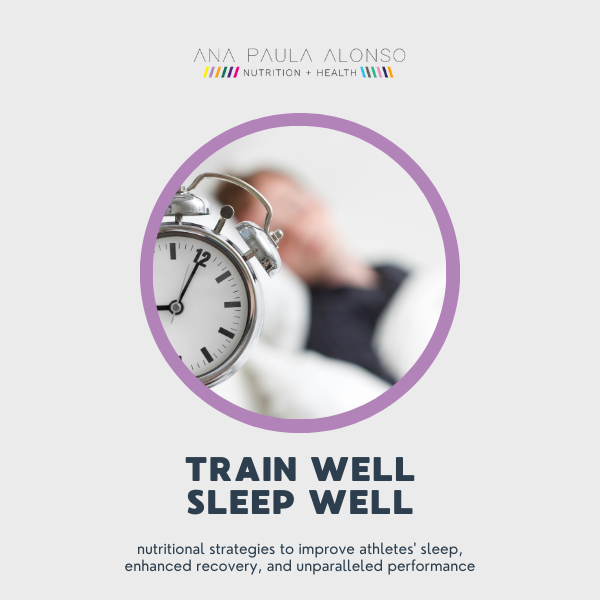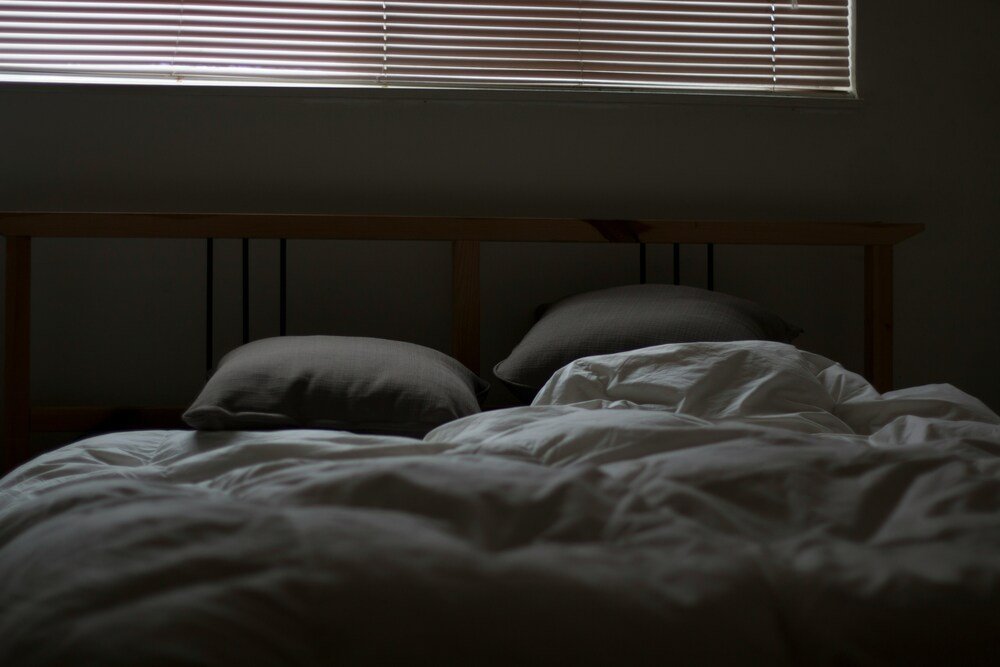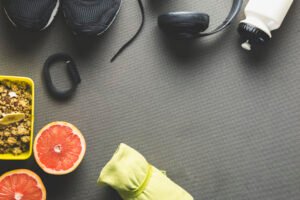Sleep is vital for physiological and psychological functions that may be particularly important to people, especially to athletes.
Sleep deprivation can have significant effects on athlete performance, especially in high-intensity, sub-maximal, prolonged exercise.
Let’s learn how you can use nutrition to improve sleep and maximize resting.
Why Sleep Matters for Runners and Athletes
Sleep is necessary for cognitive and physical repair. Sleep deprivation or restriction impairs cognition, learning, and memory consolidation. Also, decreases mental health, cell growth and repair, glucose metabolism, and immunological function. These factors can all ultimately reduce an athlete’s nutritional, metabolic, and hormone status and hence potentially reduce physical and mental health.
Sleep allows us to recover from the previous day and prepare for the next one.
Reasons Why Athletes May Have Poor Sleep
Athletes’ reduced sleep could be attributed to sport-specific elements such as:
- training (particularly early morning training begins)
- competition (stress of competing and/or late-night games)
- travel/jetlag
- smartphone use, social media, and gaming.

In addition, many athletes wake up at night to go to the bathroom if they are over-hydrated. Also, athletes may wake from feelings of hunger.
Best Strategies
Optimizing your sleep through nutrition can be a game-changer. Let’s look at how.
-> Certain foods contain nutrients that promote sleep, such as:
- Tryptophan-rich Foods: turkey, chicken, eggs, nuts, bananas, and fish are excellent sources;
- Foods rich in Iron: spinach, liver and organ meats, legumes, red meat, etc;
- Zinc-rich foods: Meat, seeds, legumes, nuts (and peanuts), dairy, eggs, whole grains, etc;
- Sources of Magnesium: dark chocolate, avocado, nuts, legumes, tofu, seeds, etc.
-> When you eat is just as important as what you eat. The timing of your meals can significantly affect your sleep quality.
- Avoid Heavy Meals Before Bed: Eating large, heavy meals late at night can lead to discomfort and indigestion, making it hard to fall asleep. Try to have your last big meal at least 2-3 hours before bedtime.
Many strategies really make a difference and improve your sleep. I’ve created a guide that includes a meal plan for a peaceful night’s sleep.

-> Hydration is key for performance, but too much liquid before bed can lead to frequent trips to the bathroom, disrupting your sleep.
- Hydrate Throughout the Day: Make sure you’re drinking enough water during the day to prevent dehydration, which can interfere with sleep.
- Limit Fluids Before Bed: Try to reduce your fluid intake about an hour before bed. If you’re thirsty, take small sips instead of gulping down a whole glass.
-> Caffeine and alcohol can be major sleep disruptors, especially for runners and athletes who rely on both for energy and relaxation.
- Limit Caffeine: Caffeine can stay in your system for a long time, so it’s best to cut off your caffeine intake by early afternoon. This includes coffee, energy drinks, tea, energy bars, caffeinated chewing gums, and coffee-containing foods (tiramisu, coffee ice cream, and coffee-flavored bagels). In case you’re wondering, decaffeinated coffee still contains caffeine. However, it has reduced levels compared with regular coffee.
- Moderate Alcohol: While a nightcap might make you feel sleepy, alcohol disrupts sleep cycles and can lead to poor-quality sleep. Also, alcohol promotes dehydration.
-> Finally, your diet isn’t the only thing that affects your sleep. Your sleep environment plays a crucial role too.
- Make your room the darkest possible. When I mean dark, is one that lacks artificial light from lamps, televisions, computers, cell phones, and other sources;
- Set the temperature in your room to room temperature. Not too hot and not too cold;
- Get away from screens at least 30 minutes before bedtime;
Improving your sleep through nutrition is a powerful strategy for any runner or athlete looking to enhance performance and recovery. By these strategies, you can create the perfect conditions for restorative sleep.
Remember, a well-rested body is a stronger, faster, and more resilient one.
Here’s to great sleep nights!








